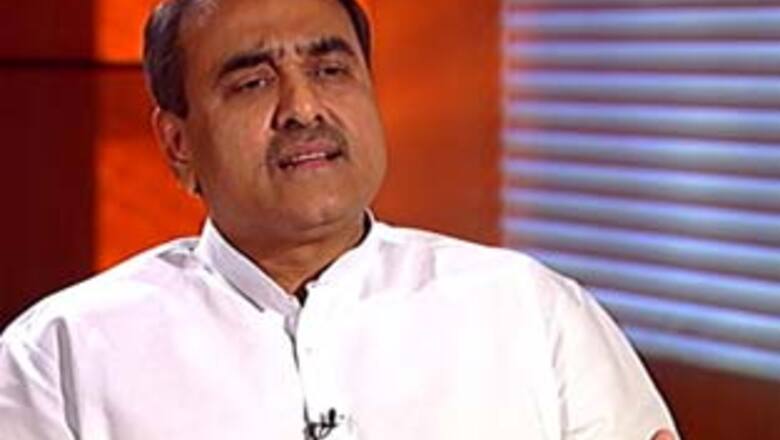
views
New Delhi: Prime Minister Manmohan Singh has decided to constitute a ministerial group to look into the issue of high aviation fuel prices in India that has exacerbated the current crisis of the industry.
Civil Aviation Minister Praful Patel made the announcement after briefing the Cabinet about the prevailing situation in the domestic and global aviation industry, including the comparative cost of fuel in India and elsewhere.
He said the $14-billion Indian aviation industry will grow at around 8.5 per cent annually over the next five years after logging a decline of 4.7 per cent last year, after a robust growth of 46.4 per cent in 2006 and 32.6 per cent in 2007.
"India's per capita number of trips is 0.02, compared to 0.1 for China, which is five times higher, and 2.2 trips for the US. So there is a huge potential in our country," the Minister said after a presentation to the Cabinet.
"Conservatively, my Ministry has estimated - also assuming no further shocks - a growth of 8.5 per cent year-on-year for India's aviation industry till 2015," the minister said.
"India's population in million per aircraft - this is an interesting piece of statistics - is 2.89," he said, adding it 1.14 for China, 0.63 for Brazil, 0.31 for South Africa, 0.24 for Japan, 0.11 for Germany, 0.07 for Britain and 0.05 for the US.
"This shows huge potential to increase aircraft penetration in the country, even when compared to (other) Asian countries."
Speaking about aviation fuel, Patel sought to highlight how expensive it was in the country, resulting in this segment adding up to nearly 40 per cent of costs, compared to 20-25 per cent globally.
He said aviation fuel was costing Rs 38,000 per kilolitre here, as against Rs 24,000 in Singapore, Rs 25,000 in New York, Rs 24,500 in Hong Kong, Rs 25,000 in Bangkok, Rs 26,000 in Tokyo, Rs 26,500 in Paris and Rs 26,000 in Dubai.
Patel said while Andhra Pradesh was charging the lowest sales tax of 4 per cent on jet fuel, it was 28-30 per cent in Karnataka, Gujarat, Kerala, Tamil Nadu and West Bengal.
"A Rs 1,000 change in aviation turbine fuel price translates into Rs 300 crore increase or decrease in the cost of operations of the sector," he said, adding that fuel prices have seen a rise of 99.6 per cent over the past year or so.
The Minister's presentation on Thursday came against the backdrop of state-run Air India asking for fresh infusion of equity to stay afloat and private carriers asking the government to announce measures that will bring down their cost of operations.
According to private carriers, their collective losses went up to $2 billion in the past year, while Air India has also accumulated similar losses, of which $1 billion was in 2008-09.















Comments
0 comment